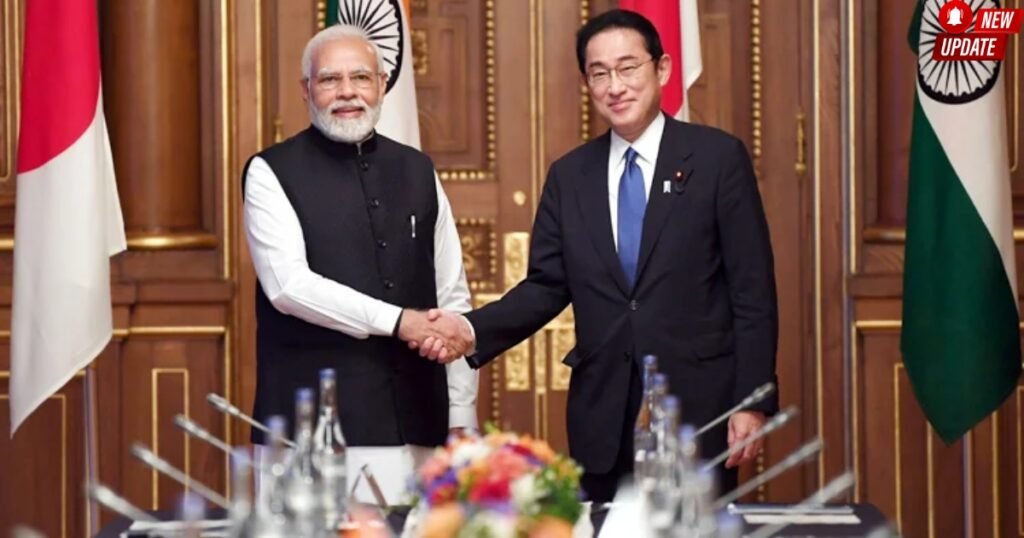
The developing connection between India and Japan is one of the most vibrant and significant alliances of the twenty-first century in the complicated world of international politics. Given the growing political conflicts in Asia and around the world, both countries, which have a long history of cultural and economic contacts, have gradually integrated their strategic interests. Their collaboration continues to change the face of international politics and has consequences for global governance, economic growth, and regional security.
India-Japan Relations History
A significant contributing aspect to the long history of cultural and spiritual relations between India and Japan is the introduction of Buddhism from India to Japan in the sixth century. Since the establishment of diplomatic ties in 1952, the partnership has developed into a “Special Strategic and Global Partnership” with increasing strategic, cultural, and economic collaboration.
Developing Economic Partnership
India and Japan have greatly increased their economic cooperation, especially in the fields of technology, trade, and investment. Japan’s commitment to assisting India’s development as a rising global power is shown by its investments in India’s infrastructure, including high-speed rail projects, urbanization, and energy.
The 2011 signing of the Japan-India Economic Partnership Agreement (JIEPA) increased trade relations even more as the two nations cooperated to reduce trade barriers and promote collaborative activities.
Strategic Collaboration and Regional Security
The relationship between Japan and India is strategically significant in ways that reach well past economics. Regional security is a major issue for both nations, especially in relation to China’s expanding influence in the Indo-Pacific area.
Japan and India have collaborated more on defense issues. Joint military drills, such the “Malabar” naval exercises. In 1992, the exercise started as a bilateral naval drill between the US and India. Since that time, Japan and Australia have joined. By showing common maritime interests and a dedication to a free, open, and inclusive Indo-Pacific, the exercise aims to improve coordination, unity, and efficiency between the participating nations’ navy.
Innovation and Technology
In terms of innovation and technology, India and Japan have advanced significantly. As an authority in advanced technology worldwide, Japan has played a significant role in assisting India in building vital technical infrastructure, especially in fields like robotics, artificial intelligence, and renewable energy, and multiple Japanese businesses engaging with Indian digital companies to develop and solve global problems.
The collaboration includes the study of space as well. Japan and India’s space agency, ISRO, have collaborated on space missions and satellite launches. In addition to enhancing both countries’ scientific ability, this partnership promotes them as major participants in the international space market.
Environmental cooperation
India and Japan both understand how crucial sustainable development is to addressing the world’s environmental problems. The two nations have collaborated to advance green initiatives because of India’s expanding renewable energy sector and Japan’s knowledge of technology in clean energy. In order to help India’s shift to renewable energy sources, Japan has offered both financial and technological support for the nation’s ambitious solar energy projects.
Since, both countries deal with serious issues relating to natural disasters including earthquakes, tsunamis, and floods, their collaborative efforts also involve disaster management cooperation.
Bilateral Treaties and Agreements between Japan and India
Over time, Japan and India’s relationship has developed into a strategic alliance with several facets. Numerous bilateral treaties and offers related to defense, technology, economic cooperation, and cultural exchanges serve as the foundation for this collaboration. The two countries improving cooperation and common interests are reflected in these accords. Here’s an overview of key bilateral treaties and agreements.
1. Japan-India Economic Partnership Agreement (JIEPA) – 2011
To improve bilateral economic ties, the Japan-India Economic Partnership Agreement (JIEPA) was signed in 2011. The agreement’s main objectives are trade liberalization, trade barrier reduction, and promoting investment between the two nations. It covers a broad range of industries, such as investments, services, and goods. Additionally, the agreement calls for collaboration in fields like public contracting, customs procedures, and intellectual property.
2. India-Japan Civil Nuclear Agreement – 2016
A Civil Nuclear Agreement between Japan and India was signed in 2016, allowing Japan to provide nuclear materials and technology to India. Japan had previously placed limitations on nuclear cooperation with nations that were not parties to the Nuclear Non-Proliferation Treaty (NPT), so this agreement was a historic step. This agreement has made Japan a more significant contributor to India’s energy security.
3. Japan-India Agreement on Cooperation in the Field of Space – 2008
India and Japan signed a space cooperation agreement in 2008 to encourage the peaceful use of space. Space research, satellite launches, and the sharing of technological expertise are among the topics covered in the pact. The partnership between Japan’s Japan Aerospace Exploration Agency (JAXA) and India’s Indian Space Research Organization (ISRO) is one notable activity under this agreement.
4. Joint Declaration on Asia-Africa Growth Corridor (AAGC) – 2017
The Asia-Africa Growth Corridor (AAGC) initiative was started in 2017 by Japan and India with the goal of promoting connectivity, economic growth, and infrastructural development between Asia and Africa. The goal of the two nations’ joint AAGC program is to encourage investment in vital infrastructure in African nations, including ports, highways, and energy.
The collaboration additionally highlights how international cooperation is becoming more and more significant in global governance. India and Japan have collaborated within institutions like the United Nations, World Trade Organization, and G20 to advance their common ideals of democracy, peace, and prosperity. They both favor a rules-based international system.
End Note
The expanding India-Japan connection is extremely important for global politics. Their partnership covers a wide range of topics, including environmental sustainability, regional security, and economic and technological cooperation. Both nations will probably have an even greater impact on world affairs, especially in the Indo-Pacific area, as their relations continue to grow.



